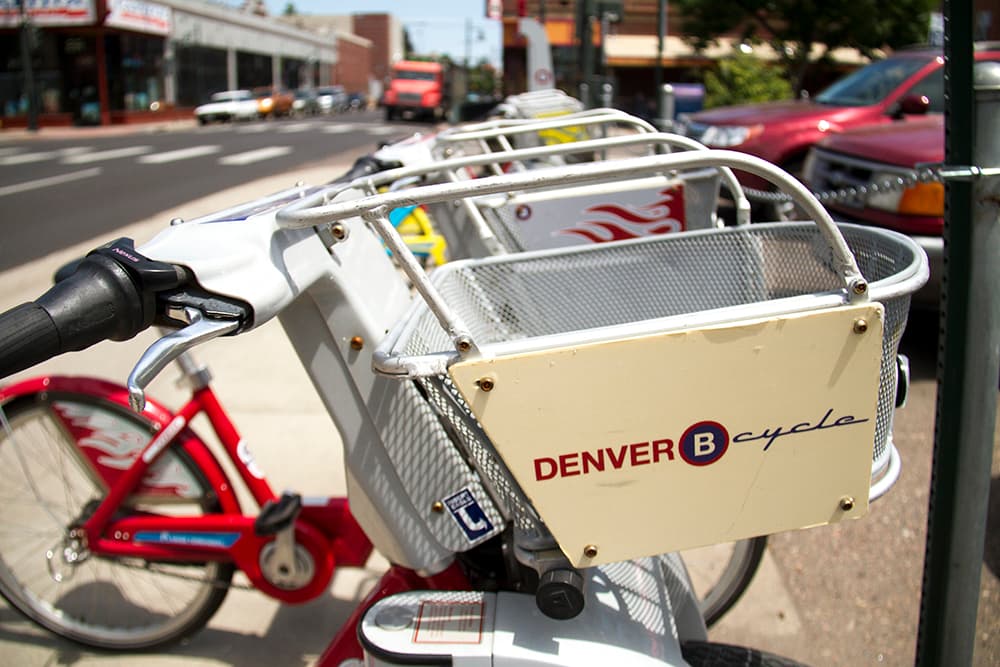Amid competition from electric scooter and bike companies, dwindling ridership, shallow revenues, and bikes aging way past their prime, the Denver B-cycle era will end Jan. 30.
Denver Bike Sharing, the nonprofit that has contracted with Trek-owned B-cycle since 2010, announced the news to its members Thursday morning. The nonprofit organization will remain intact and is in talks with a new vendor for a new system, Denver Bike Sharing executive director Mike Pletsch said.
In a coordinated announcement, Denver Public Works said it will issue a request for proposals from private bike-share and scooter-share companies to operate in Denver. The contracts will replace the permitting system that currently allows companies like Lime and Jump to operate. The competitive bidding process "will help Denver better manage and coordinate the delivery of these commercial operations and help ensure the city partners with the most qualified operator(s) to further its mobility goals," DPW said in a statement.
The city government helps fund the bike-share system but does not operate it, and it will not run one in the future, said Mike Strott said, a spokesman for the mayor's office.
No matter what, there will be a gap between B-cycle and whatever takes its place, Pletsch said. The company's exit will take 737 publicly available bikes off the street.
"The city needs to act quickly to find a replacement for Denver B-cycle so that Denver's residents, workforce and visitors to the city have access to reliable mobility choices and don't feel driving is their only option for getting around," said Piep van Heuven, policy director at Bicycle Colorado. "City leadership has also been clear that mobility options are a top priority for them, and now should act fast to ensure reliable, equitable mobility choices for everyone in Denver."
Denver's bike-share system was the first of its kind among major U.S. cities when it launched on Earth Day 2010 after a pilot during the 2008 Democratic National Convention.
But the bikes and the tech are old now and the system now competes with "dockless" modes -- electric bikes and scooters that don't have to be picked up and dropped off at stations. Their entrance into the shared economy combined with an aging system has fueled B-cycle's downfall locally.
"Denver B-cycle, back when we launched in 2010, they were the cutting edge technology," Pletsch said. "We just have an aging system, over 5 million rides on a lot of these bikes, and it's time to replace the system and at the moment we don't have the funding for that."
Ridership fell for the fifth straight year in 2018, according to the company's annual reports. Riders took about 305,000 trips that year, or about 835 trips a day. In the first six months of Denver's sanctioned dockless transport program, six e-bike and e-scooter companies combined to average about 5,100 trips a day.
On its way out, Denver B-cycle gave free passes to 5,280 people to incentivize biking.













